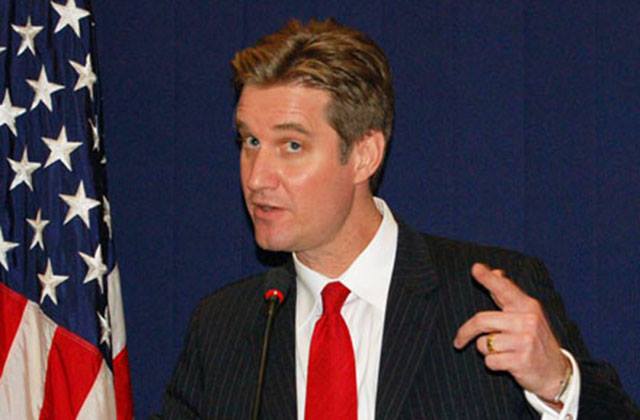If the agreements reached in St. Petersburg are being implemented then everything is very good, if not—it’s not so good: Matthew Bryza

Matthew Bryza, former US Ambassador to Azerbaijan, Former US Assistant Secretary of State for the South Caucasus, former OSCE MG U.S. Co-chair, Director of the International Center for Defence studies in Tallinn (Estonia), recently positively assessed the meeting of Serzh Sargyan with the presidents of Russia and Azerbaijan held in St. Petersburg on Nagorno-Karabakh issue. He stated that the summit created a beneficial psychological atmosphere for further progression of the political process. “The meeting strengthened the outcomes reached in Vienna on May 16. Decision was made to add the number of observers. The fact, that the meeting took place, it’s undoubtedly a positive fact,” he said.
However, Ilyam Aliyev, president of Azerbaijan, appeared with unexpected statements. Aliyev stated, “As for the claim of the Armenian side on installation of investigative mechanisms, there is no such a necessity at this stage. Firstly, those mechanisms don’t exist. Nobody says to us concretely what these mechanisms are. Under such case that issue won’t be proper to discuss today. Secondly, what sense does it make? If under it “freezing” of the conflict and initiating of additional operations on the contact line is understood, then Azerbaijan, surely, won’t take that step.” “168 Hours” touched upon implications of this denial of Azerbaijan with Matthew Bryza.
Mr. Bryza Azerbaijani president denied information on installation of investigative mechanisms, which basically confirmed, that such an agreement hasn’t been reached in St. Petersburg but expansion of mission of OSCE Chairperson in Office. What does this announcement mean and how might Minsk Group react to this?
Well, the Minsk Group obviously needs to sit down with president Aliyev and ask him for clarification, because what was announced after this most recent meeting of the presidents that president Putin appeared in St. Petersburg, what they had agreed to develop that mechanism. So, this information is contradictory what the outcome is, so the MG needs to clarify if the position of the Azerbaijani side has changed, well, then the MG needs to negotiate a way forward. There is so much unclear information here that it’s difficult to say much more on it specifically.
Mr. Bryza in the situation of these kind of moods what can we expect from other presidential meetings?
If what happens now is that this clarification and the MG leads a successful effort to implement what seems to have been agreed in St. Petersburg and define that incident response mechanism. The don’t seem to expect progress. But If the positions that have been agreed in St. Petersburg changed , then we are in a more difficult period, that’s the situation.
Mr. Bryza after this announcement can we assess the meeting in St. Petersburg as a progress in negotiation process?
I don’t know, and coming back to the same point over and over again, I learnt in my experience diplomatically, that in these reports there could be information that is false or misinterpreted , so we need a clear statement and I would wait for the MG to tell it basically, as the MG Co-Chairs will be in touch with the presidents directly and again if the agreements reached in St. Petersburg are being implemented then everything is very good. If the meeting agreed in St. Petersburg are not implemented it’s not so good, but I don’t have any more comment because I haven’t talked to president Aliyev. You know these reports are not entirely accurate.
By Araks Martirosyan

























